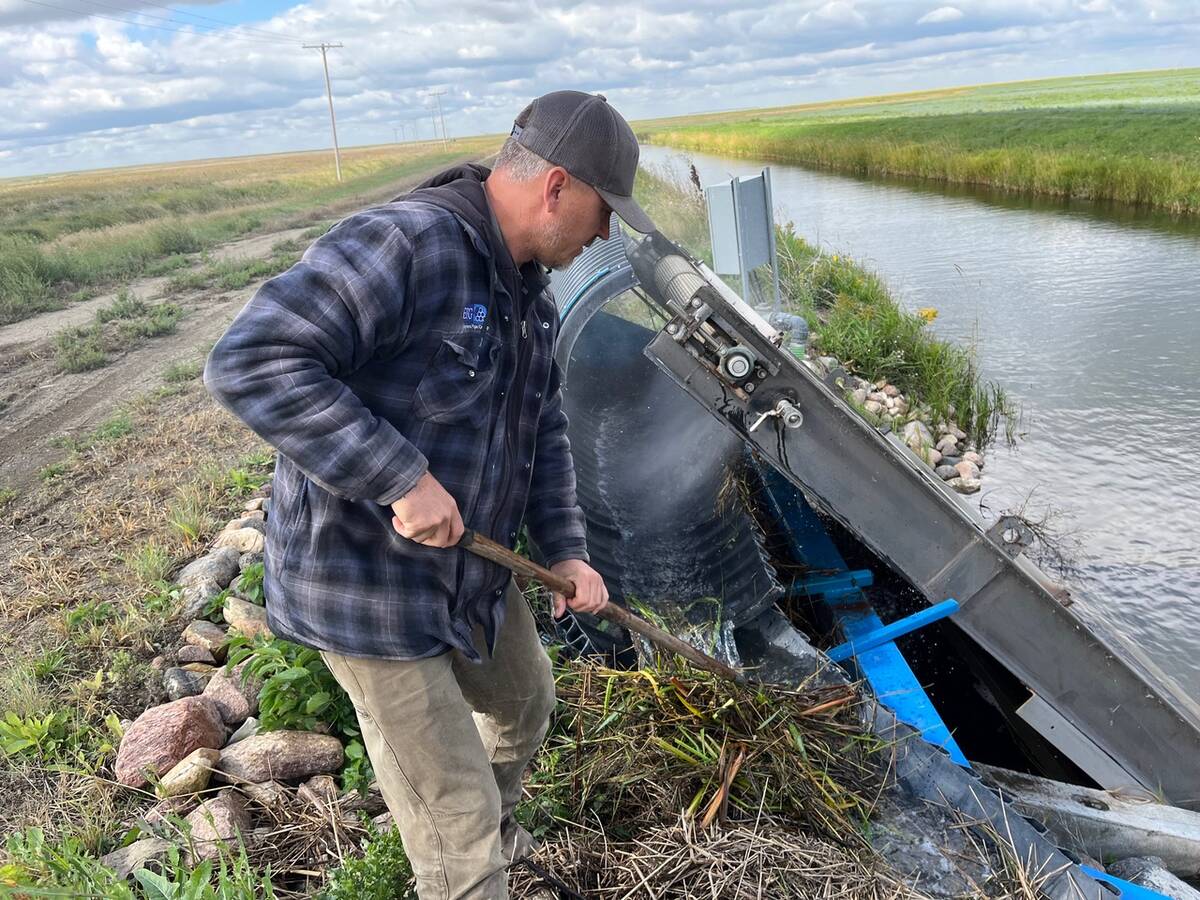DAYSLAND, Alta. – It’s not quite noon and already there are customers in the Daysland Inn. A couple of men drink beer at a table, another sips Diet Coke at the bar and a fourth man plugs money into a VLT machine in the corner.
The glowing, whirring video lottery terminals that have become as much a part of prairie bars as terry towel table tops have become an issue in Alberta’s election campaign.
Across the province small groups of people are forming to try and ban the machines. They say families have been hurt. Money that should have been spent on rent and groceries is being plugged into the machines.
Read Also

Saskatchewan farmer uses tile drainage to manage water
The integration of both irrigation and tile drainage results in higher yields, water efficiency, improved soils and less nutrient runoff, says one producer.
But not everyone wants to get rid of VLTs.
For Willie Zoschke it’s simple. The VLTs in his hotel help pay the bills.
“It gives the hotels a boost. It helps pay the lights and gas and it helps the country town,” said Zoschke, owner of the Daysland Inn.
He makes about $1,500 a month from his four machines.
Since drinking and driving laws have become stricter, fewer people spend the evening drinking in rural bars. Small bars need the VLT boost, he said.
Election promises
Progressive Conservative premier Ralph Klein said he will honor any community’s decision to ban VLTs. The Liberals said they’ll take VLTs out of the rural communities in three years because of the social damage they have caused. The New Democrats would limit VLTs in cities to casinos and allow each rural community to decide what it wants to do with VLTs. The Social Credit party said it would get rid of VLTs in 30 days.
So far, about 21 Alberta communities have started petitions to get rid of VLTS in their community.
Last week, a group of Calgary churches asked that VLTs be banned from the city and the province.
In Grande Prairie, local businessperson Kevin Hilgers has gathered 800 of the 3,200 signatures he needs to force a vote on the issue. While he doesn’t want the debate to become political, he wants the city’s residents to be allowed to choose.
“They’re costing us more than helping us,” said Hilgers.
In Grande Prairie, $3.4 million is spent in VLTs each year and only $940,000 comes back to the community in grants.
“I think it’s just bad math. I just wish they would have asked us before they put them in the city,” he said.
Bar owner’s choice
In Killam, Lis Brodie also wants choices. But she wants to have the choice to decide if VLTs stay in her bar or not. She doesn’t want politicians making that decision.
“If the government takes them out then the government is controlling us,” said Brodie, who runs a lounge, restaurant and arcade in the central Alberta town.
“I do feel people need choices. I don’t see why people should be told what they can’t have.”
Brodie hasn’t seen anyone become addicted to plugging money into the machines.
“The ones that play here can afford it. There’s no welfare cases here,” said Brodie who enjoys the odd game herself.
“I enjoy it once in awhile, but I’m not going to put my paycheque in there.
“I would hate like hell to lose them. It would definitely hurt me. I’m making money from them,” said Brodie, who makes around $800 a week from six machines.
Last year, Alberta made $427 million on 5,700 machines. This year the government expects to make about $500 million in VLT profit.
Communities can apply to the government for lottery grants for culture, sports and recreation projects.
In the budget, the government announced it would add another $50 million by 1998 to the lottery pot in addition to the $123 million it gives back to the communities now.
















